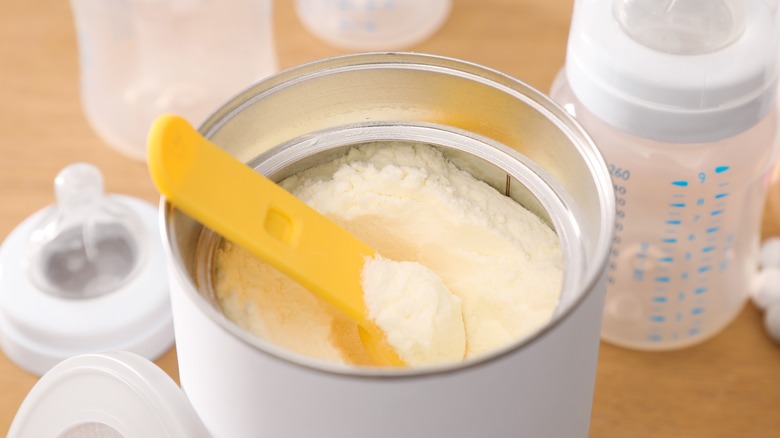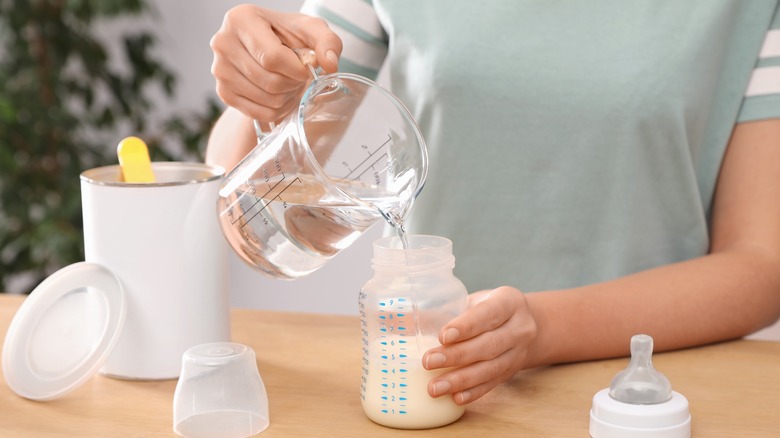Why Experts Are Warning Against Homemade Baby Formula
As parents continue to have trouble finding baby formula amidst the nationwide formula shortage in the U.S., some have been turning to homemade recipes to feed their infants. According to Newsweek, the shortage was caused by both supply chain issues and a formula plant recall in February 2022, causing a major plant to temporarily shut down and stop manufacturing formula. By the first week of May, around 43% of all formula products were out of stock in stores across the country.
As a result, some parents have been sharing and following DIY formula recipes all over social media. For instance, some homemade formula recipes being shared on TikTok contain a variety of eclectic ingredients that may not be safe or nutritious enough for babies and infants, including sea moss, hemp seeds, and Medjool dates (via Rolling Stone). Meanwhile, other recipes call for ingredients like raw or unpasteurized cow's milk, which is strongly advised against by the U.S. Food and Drug Administration (FDA) due to the increased risk of disease-carrying pathogens.
Homemade baby formula can be dangerous
Since commercial infant formula is designed to mimic breast milk as closely as possible, it's not an easy concoction to replicate on your own (via Newsweek). As a result, homemade recipes are often unsafe or lacking in essential nutrients. "Although it may seem safe to use substitutes or make homemade formula to feed your baby, it can be very dangerous and potentially life-threatening," Dr. Diane Calello, a pediatrician and director of the New Jersey Poison Control Center, said in a news release (per HealthDay News).
In fact, some homemade formulas can cause calcium and vitamin D deficiencies, which can lead to rickets. An imbalance of electrolytes in homemade baby formula can also cause swelling in the brain. Because of this, Calello says that babies shouldn't be fed anything with cow's milk, rice milk, almond milk, goat's milk, protein shakes, or watered-down homemade formula. Parents should also avoid feeding their infants honey, graham crackers, or cereal. If you can't find your regular brand of commercial formula at the store, you should talk to your pediatrician about the safest options and alternatives. In an absolute emergency, infants may be fed formula for premature babies or soy milk fortified with calcium and protein for a few days, as long as they are almost 12 months old.


